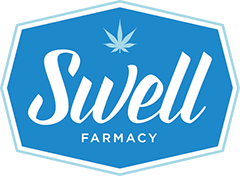Chances are good that you’ve probably heard the phrase “420,” or four-twenty, in relation to marijuana at least once in your life. The clock strikes 4:20 two times a day, but Cannabis Christmas only comes once a year on April 20th. So in celebration of the most special cannabis holiday, we’re bringing our readers a lesson about the true origin and history of 420.
Rumor Has It
The most widely known (and believed) rumor about 420 claims that once-upon-a-time “420” was a police dispatch code to report marijuana smoking in progress. Sounds pretty legit, so it’s no wonder why so many people believe it. But, alas, it is a made-up tale. Actually, to be fair, the Las Vegas Metropolitan Police Department does have a code 420, but it’s used to report a homicide.
Another rampant rumor involves the California Penal Code, but the 420 section has nothing to do with cannabis. Again, it sounds good, but it’s not true. The California Senate Bill 420 (passed in September 2003) refers to the use of medical marijuana, but the bill was named for the code, rather than the code named from the bill.
Others say that 420 signifies the number of chemical compounds found in the cannabis plant. Like those mentioned above, this is only a rumor. In reality, there are more than 500 known chemical compounds in cannabis, including at least 70 cannabinoids and 120 different terpenes.
The True Story of 420, 4/20, and 4:20
In 1971, five high school students in San Rafael, CA, calling themselves “the Waldos” as an homage to their hang-out spot in front a wall outside the school, used the term in connection with a plan to find a cannabis crop they’d heard had been abandoned by a Coast Guard service member. On the days they went searching for the crop, the Waldos would meet at the Louis Pasteur statue on their high school campus at 4:20 p.m. As time went on, the code phrase became “4:20 Louis” as in “meet at the Louis Pasteur statue at 4:20.”
Unfortunately, the friends never found the crop. Eventually they gave up looking, but their useful codeword stuck, as it was a discreet way for them to communicate about marijuana.
“I could say to one of my friends, I’d go, 420, and it was telepathic. He would know if I was saying, ‘Hey, do you wanna go smoke some?’ Or, ‘Do you have any?’ Or, ‘Are you stoned right now?’ It was kind of telepathic just from the way you said it,” explains one of the Waldos, Steve. “Our teachers didn’t know what we were talking about. Our parents didn’t know what we were talking about.”
How the Grateful Dead and High Times Helped Spread “420”
While the story above explains the modest origin of 420, it doesn’t explain how the term grew to be a globally recognized phrase.
Around the same time that the Waldos were searching for the hidden cannabis crop, members of the Grateful Dead (now touring as Dead and Company) moved to the Marin County Hills, near the Waldos’ high school. Through happenstance, one of the Waldos, Patrick, not only managed a Dead sideband, he was also friends with Dead bassist Phil Lesh. Patrick smoked with Lesh on numerous occasions and, although he doesn’t remember explaining the origin of “420”, he says the codeword was often dropped during their smoke sessions. Patrick was also friends with the likes of rock legend David Crosby and esteemed guitarist Terry Haggerty who became privy to the 420 lingo, as well.
Once High Times caught wind of “420,” the magazine boosted the phrase into stardom. “I started incorporating it into everything we were doing,” High Times editor Steve Hager said. “We built everything around 420. The publicity that High Times gave it is what made it an international thing. Until then, it was relatively confined to the Grateful Dead subculture. But we blew it out into an international phenomenon.”
In the early 90s, when the internet was barely a thing, High Times purchased the domain 420.com; however, at this time, High Times was still under the impression that 420 derived from a police code. In 1997, the Waldos decided to set the record straight.
Hager concludes, “Unless somebody can come up with something that predates [the Waldos] coining ‘420’ in 1971, then I don’t think anybody’s going to get credit for it other than them.”
There you have it: the real history of 420. We think it’s pretty cool that a group of friends just hanging out and looking for adventure coined the term, never considering the possibility that their weed lingo would have such a major cultural impact on the world.
Whether or not you’re a history buff, Swell celebrates 4/20 in epic fashion! Want to win weed for a year?! Check out swellfarmacy.com/420-deals for everything we have going on at all four Swell locations for the holiday!
